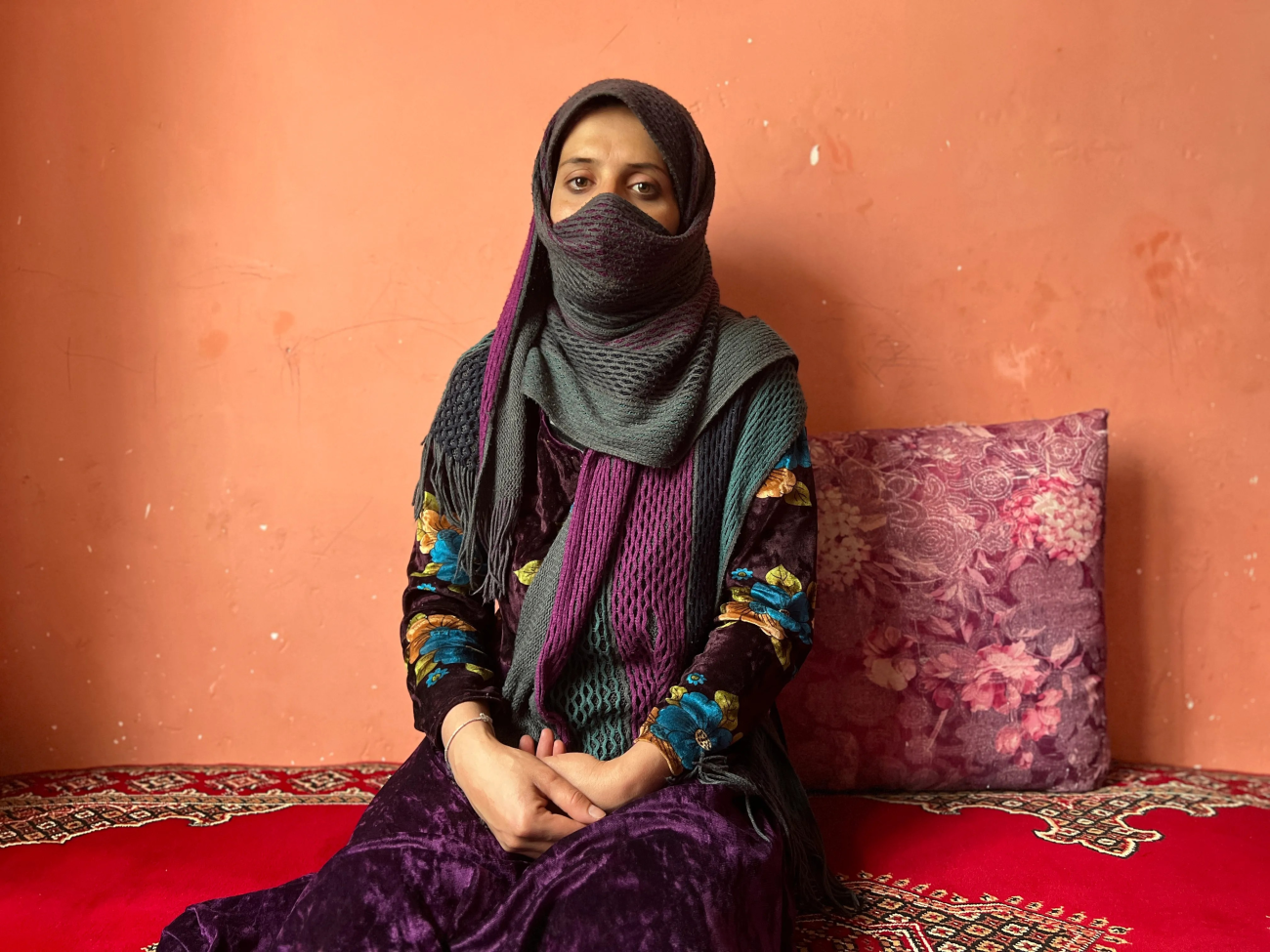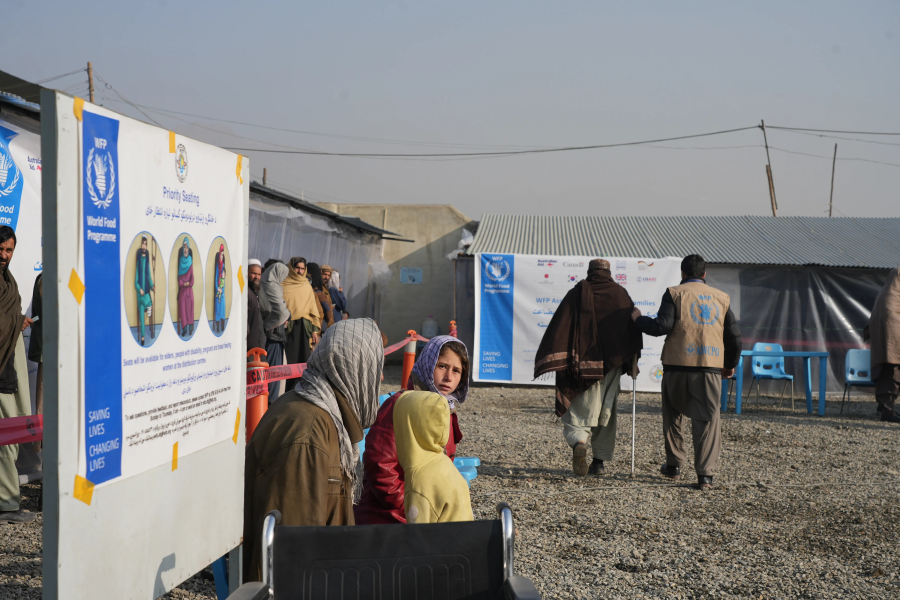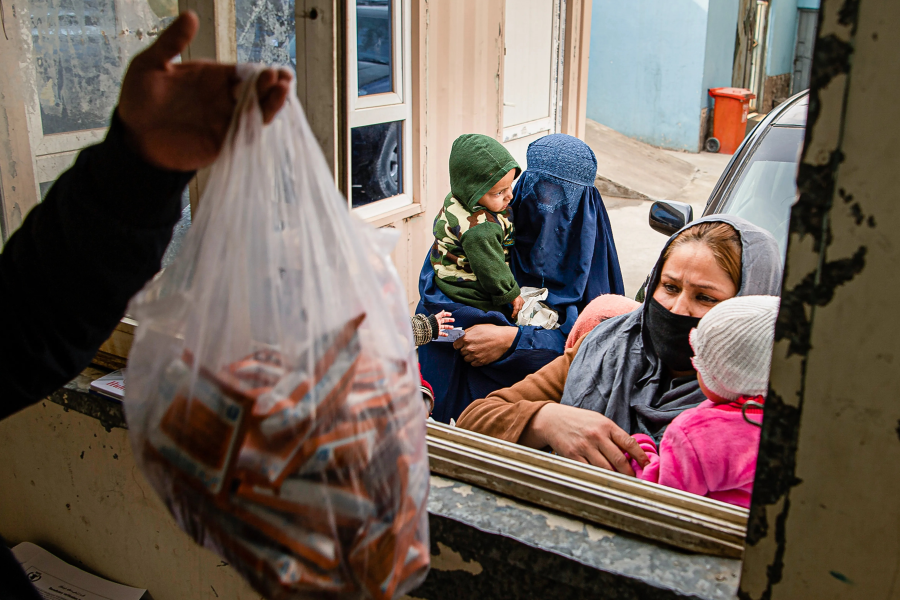Afghanistan: A mother’s hope amid hardship

In Afghanistan, Brishna fights to feed her five children, relying on odd jobs, community support and WFP’s lifesaving rations.
In the Waisal Abad neighborhood of Kabul, Brishna, a 32-year-old mother of five, lives in a simple house without running water or sanitation. With a husband too sick to work, she previously relied on the support of her father and brothers. After they lost their jobs in the near-collapse of the economy three years ago, they struggle to feed their own families and are no longer able to support Brishna’s.
Since then, Brishna has shouldered the burden alone, piecing together a living through occasional work in neighbors’ homes and relying on the kindness of those around her.
Their meals consist of simple foods like potatoes, vegetables, and sometimes rice. “There are times when we have nothing to eat at night, and the children have to go to bed with an empty stomach,” Brishna says. “It is very hard for a mother to see her children in this situation.” When her children are crying because they are hungry, her neighbors share their own meager meals with her family, if they can afford to spare them.
Brishna and her family are among the 15 million people in Afghanistan who do not know where their next meal will come from. Eight out of ten families cannot afford a minimal nutritious diet, and three out of four are forced to borrow money just to buy food.
The challenge is even greater now after the birth of her youngest son a few months ago. “I am afraid [that] if I don’t eat enough, I won’t be able to produce milk for my child which will affect his health,” she says.

The community elder relayed Brishna’s situation to WFP. The family was then surveyed and selected for assistance. As the head of her family, Brishna now receives USD 40 in the local currency to help feed herself and her children over the winter months. The assistance is calculated to allow a family of seven to buy food for two weeks and is not enough to cover the whole month. “The children need to be well-nourished to stay healthy. With the money I receive, I usually buy cheaper food so we can eat more days in a month,” she says. With unwavering determination, she stretches every resource to ensure her three daughters and two sons have something to fill their stomachs, however little it may be.
More than a decade ago, Brishna completed high school and hoped to go to university and become a doctor or a teacher. “I was a bright student,” she recalls. However, her family’s financial troubles did not allow her to pursue this path, and she instead got married earlier than she had hoped. “If I had been able to study more, I would now be in a better position to support myself and my children.”
Despite these challenges, Brishna refuses to let her troubles define her children’s future. Today, she works to provide her children with the possibilities that were denied to her. “I endure hardships to support them in their studies, so that they can stand on their own feet in the future.” All her school-aged children go to school, a rare thing among the most vulnerable families in Afghanistan, who often need to send children to work to survive. “Girls must learn skills to be able meet their needs,” she adds.

Afghanistan is currently experiencing its most severe spike in child malnutrition ever recorded, a crisis that correlates with the drastic reduction of WFP’s emergency food assistance and malnutrition prevention activities due to funding shortages in the past two years. This year alone, 3.5 million young children in Afghanistan are expected to be malnourished - half a million more than last year. 1.2 million pregnant and breastfeeding mothers additionally suffer from malnutrition and are in urgent need of treatment and nutritious food.
Last year, WFP reached a total of 9 million people in Afghanistan with lifesaving emergency food assistance, half of them being women and girls.
WFP’s lifesaving emergency food assistance in Afghanistan is supported by the Asian Development Bank (ADB), the European Union Humanitarian Aid, France, Germany, Japan, the Republic of Korea, the United Kingdom and the United States of America.


